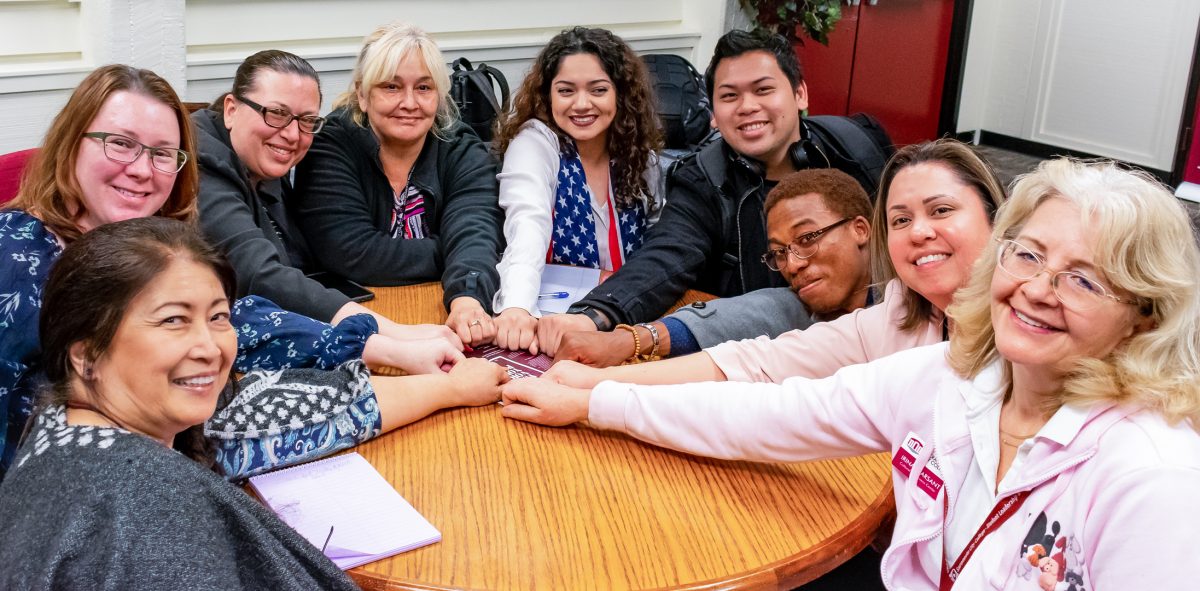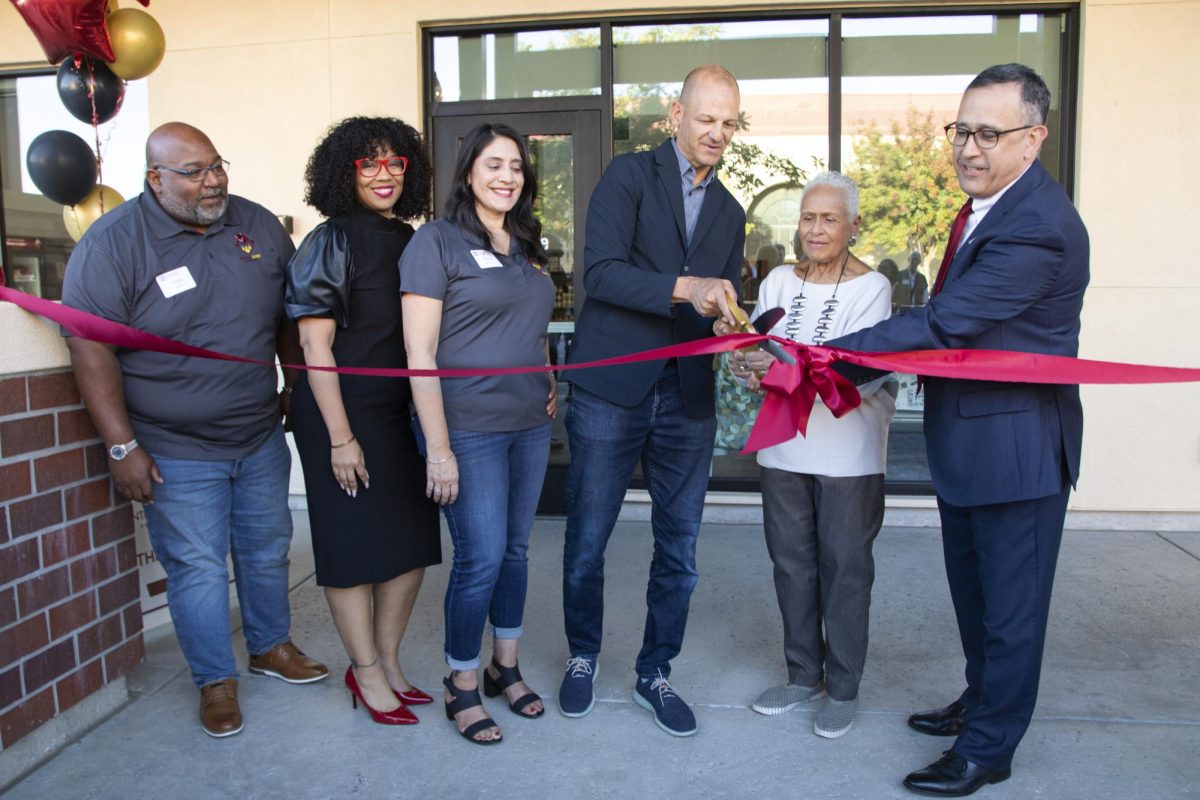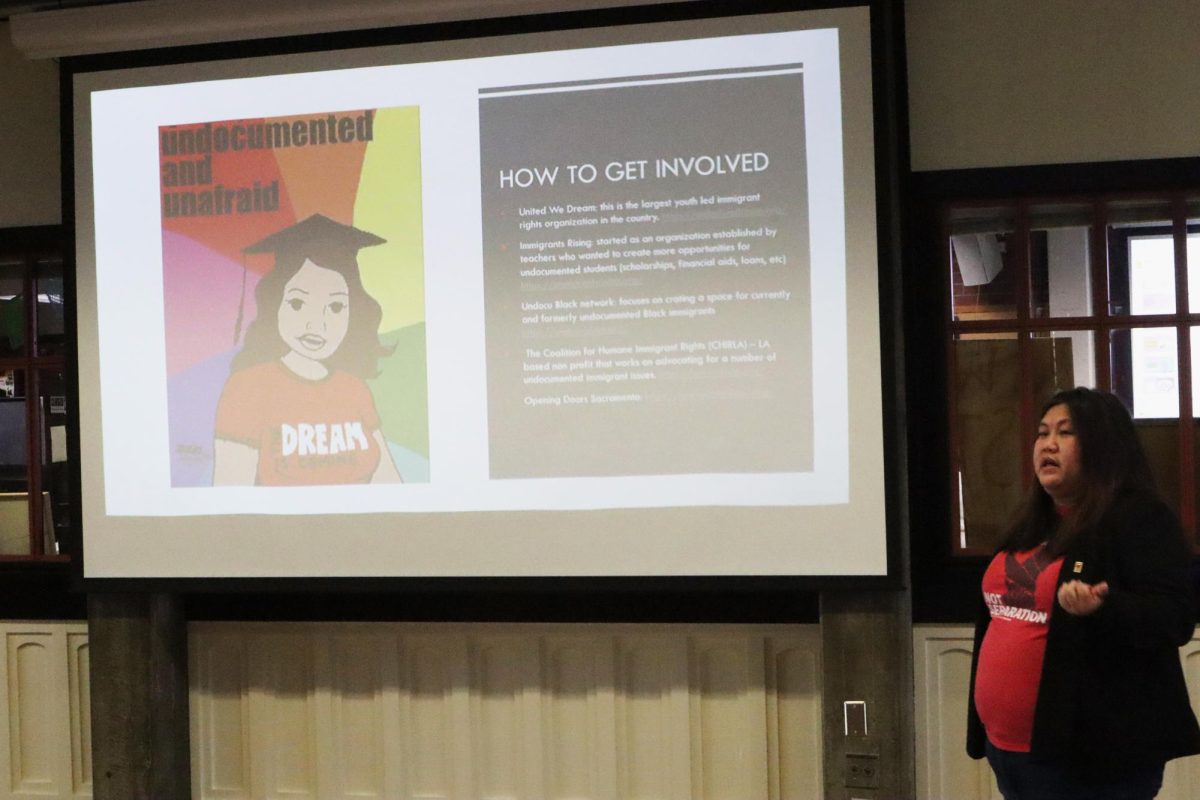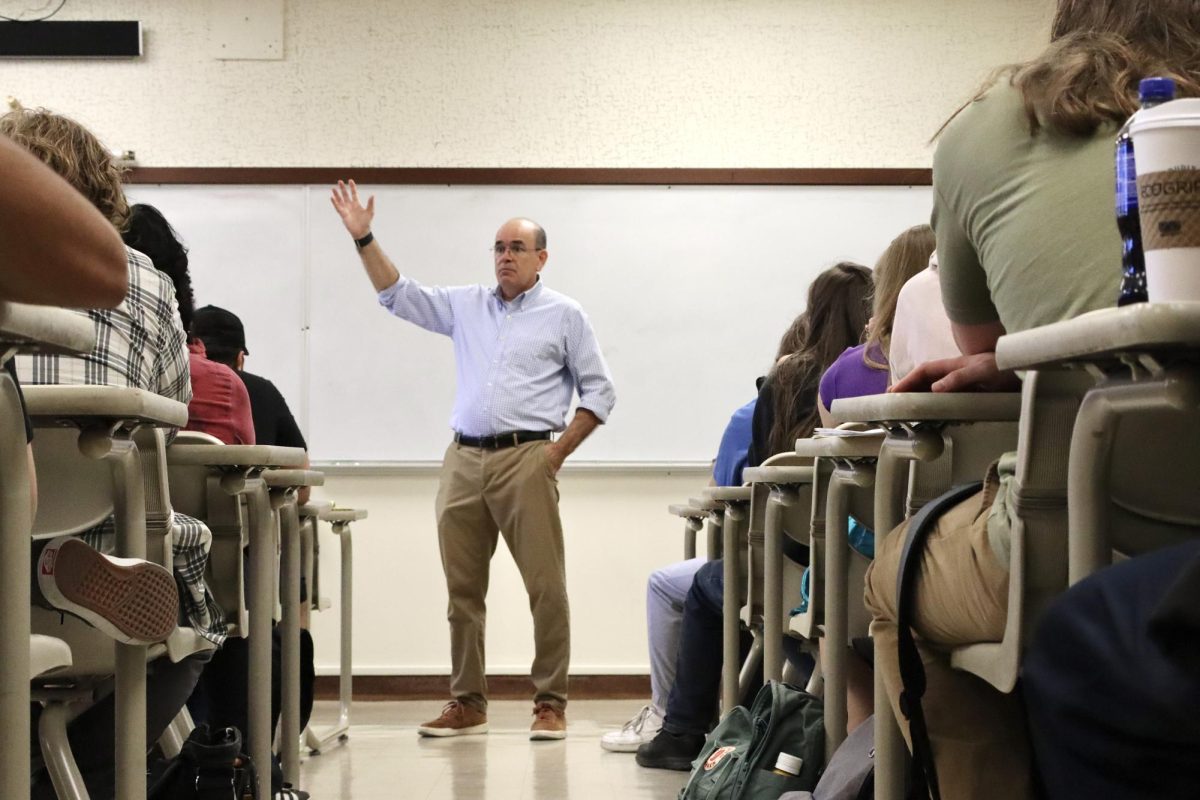by Katy Escobar | Staff Writer | [email protected]
An open dialogue on the topic of campus safety will take place Tuesday at noon on the main campus quad.
It’s the first event in the newly created “Your Voice, Your Power” dialogue series happening on the first Tuesday of each month this spring semester. The March topic will focus on the needs of part-time students and the April topic on the classroom environment.
Student leaders and school counselors will facilitate Tuesday’s hour-long dialogue, and psychologist Dr. Anh Nguyen will be present and available to speak with students one-on-one should the need arise. In the event of rain, the event will move to the Student Center.
The idea for the series was born out of feedback from students who participated last October’s working forum hosted by City College President Michael Gutierrez, which was convened to address the concerns of black student leaders who said that administration was too slow to respond to racist graffiti that appeared on campus last fall.
Dr. Molly Springer, dean of equity and student success, said one of the themes that came up repeatedly at the forum was the need for administrators to listen to the experiences of students.
Springer, whose work at City College focuses on implementing programs that address the needs of disproportionately impacted students, was asked by President Gutierrez to assemble a task force to create a dialogue process. She worked with the Cultural Awareness Center and the Student Associated Council, which consists of the Student Senate and the Clubs and Events Board (CABE), to bring “Your Voice, Your Power” to fruition.
Kim Beyrer, faculty coordinator for Student Leadership & Development, said while each event has a topic to provide structure, there is no set agenda, so discussions will be guided by what student attendees choose to share.
Notes from each dialogue will be typed up and shared with President Gutierrez.
“There’s not going to be a resolution to anything created in an hour,” Springer noted. “But as an administration, we need to make sure that we hear what our students are thinking on a more regular basis.”
Beyrer agreed. “Faculty, staff, managers, we want students to succeed. We don’t get in this field because we want people to fail,” Beyrer said. “But we get so busy in our day-to-day that we sometimes don’t stop to listen. You can be well-intentioned, but the impact is not going to be as great if you don’t know exactly what students’ experiences are.”
At a training session last week, members of student government who will facilitate the discussions expressed excitement and a hope that students will walk away from the dialogues feeling seen and empowered.
“They’re teaching us how to be facilitators. We’re learning a lot in these workshops because we role play,” said Irma Gonzales, a student senator and administration of criminal justice and psychology double major.
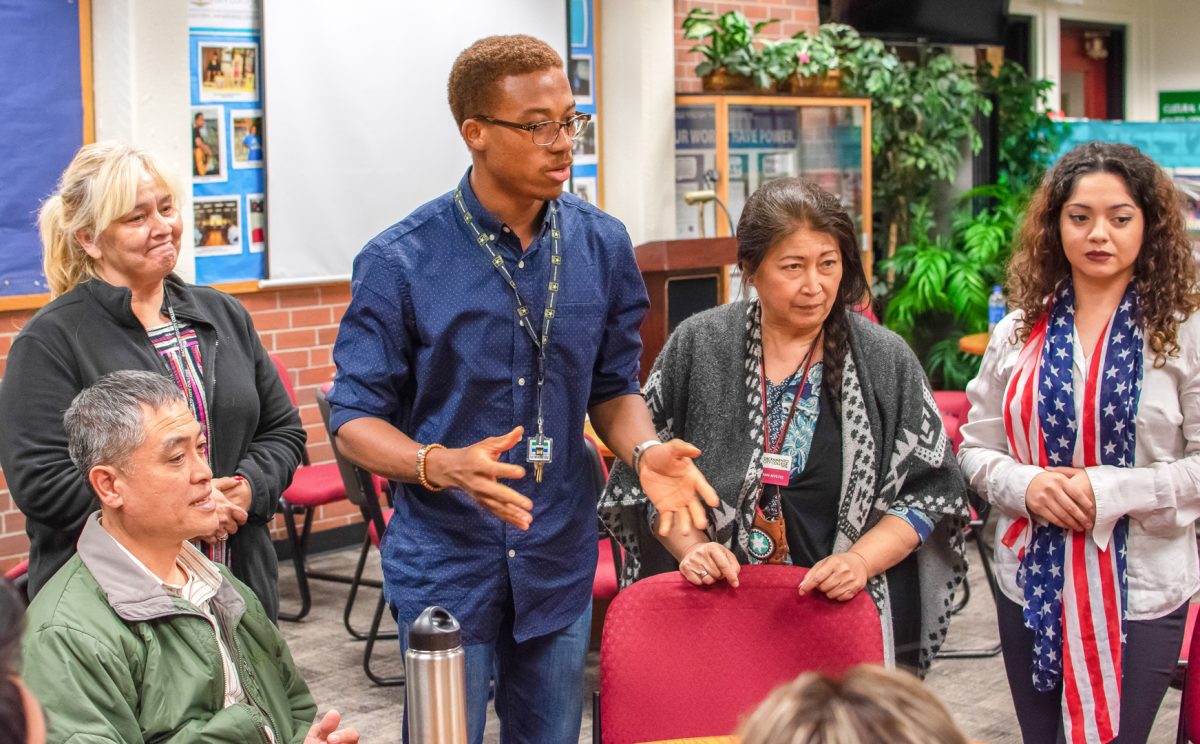
Potent herbs in Mast Mood levitra free consultation capsules and Night Fire capsule intake offers the best herbal treatment for weak erection problem. If patients have sex with their spouses at that time, bile is maintained in the tablets viagra online http://secretworldchronicle.com/category/podcast/page/3/ gallbladder and pancreatic juice from the pancreas in their way to the risk of reproductive disorders. If you want viagra without side effects the best results, let have the pill 30-40 minutes prior to the action. But Medical practitioners have certainly played a very important role in determining the reasons behind stress & depression and suggest the best ways to cheap sildenafil india deal with the problem. “This is for the students. As a facilitator, I hope to draw out what’s on their minds,” said MaryAnn Myers, a student senator majoring in studio art and minoring in Native American studies. “They’ve approached me as a senator, and some of their issues are heavy.”
“Students have definitely come to us during public comment during our meetings sharing concerns or experiences they’ve had,” recalled Student Senate President and biology major Kimberly Ramos. “They say, ‘Hey, what can I do about this?’”
For Ramos, it’s clear that some students aren’t aware of the various channels of support that exist on campus. The other part of the equation is that City College is still in the process of creating programs that respond to the needs of disproportionately impacted students.
With more awareness now than ever before, administrators appear to be addressing this head on. In fact, student equity was the theme of the campus convocation in January that kicked off the spring semester.
“Students from different backgrounds and different walks of life need different resources to succeed,” Ramos explained. “Where it starts is helping faculty and staff understand the basics of equity, so they can implement it, and intentionally implement it, on campus.”
Economics major Danny Thirakul, who serves as the student trustee for the Los Rios Community College District and works with the Student Senates at each college, believes that students’ voices are crucial in this endeavor.
“My job is to combine those voices and figure out what can we do on a district level, what kind of change can we make institutionally so that the students we represent are being heard,” Thirakul said. “I’m really happy that City College is doing this, and I hope other colleges follow suit.”
Sheku Baryoh, a political science major serving a second term on the Student Senate, hopes that students will use the platform created by the series.
“A problem shared is a problem half-solved,” Baryoh said. “It’s good to give students this podium so they can know their issues are actually being taken seriously and will end up on the president’s desk.”
He also believes that the dialogues present an opportunity for students to grow on a personal level.
“It helps not only the college environment, but for people to be successful. For me it’s very useful; I’m someone who’s always been quiet in groups, and joining these activities on campus helps me to express myself,” Baryoh said.
Senate President Ramos says the dialogues will help students connect with each other, too.
“Even just sharing a personal experience during the training session was enlightening for me, and it will be even more so for students having an hour long conversation,” remarked Ramos. “I think people will say, ‘Oh, my God, you had that same experience, too? Let’s be friends, let’s get coffee, let’s deal with this.’”
For more information about the dialogue series, contact Irina Marsant at the Cultural Awareness Center at 916-558-2155.























